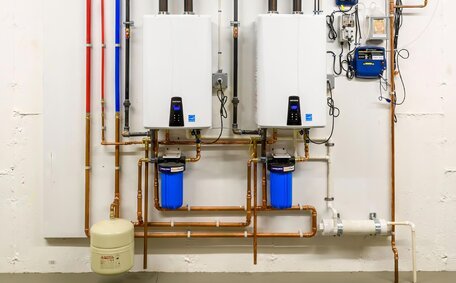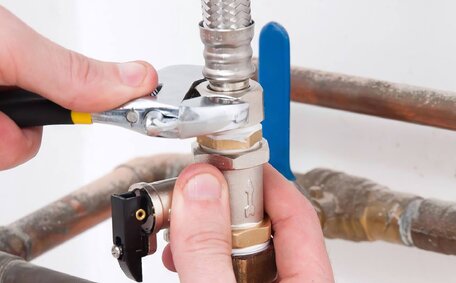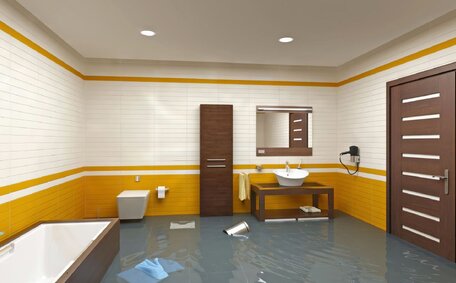Understanding the Relining Process and its Importance
The relining process involves several key steps to renew and reinforce pipes or dentures.
For pipe relining, we first use CCTV cameras to fully inspect and measure the pipework. We then clean the pipes thoroughly before applying a protective epoxy coating, reinforced with fibreglass where necessary. This cures to form a smooth, seamless new pipe wall that can last 50+ years.
This expands into the impression for an exact fit. The materials cure rapidly for same day turnaround.
Technicians then bond a thin layer of dental acrylic polymer to the denture surface. With denture relining, impressions and bites are taken to realign the shape.
Using non-toxic, durable polymers approved for drinking water systems and dental use is vital. We only employ safe, high-quality resins during relining to prevent contamination and ensure longevity.
Relining restores functionality efficiently without full pipe or denture replacement. The process is affordable, non-invasive and environmentally responsible - avoiding landfill waste of old materials. Keeping relined products well-maintained will provide many years of dependable service.
Materials Used in Pipe Relining
Epoxy resin is the most widely used pipe lining material. This two-part polymer offers optimal flow for coating complex pipe systems and cures to a hard, protective barrier able to withstand corrosion and temperature fluctuations between 0-60°C.
Applied as a liquid resin, epoxy linings form a smooth, seamless layer over the old pipe surface that conforms to any size or shape. The materials also contain antimicrobial additives to resist buildup and bacterial growth.
Polyurethane
Where greater flexibility is needed, we may use a polyurethane-based resin for pipe relining instead. This material remains pliant to handle ground shifts and freezes better than standard epoxy, while still offering robust protection.
Cured polyurethane linings are ideally suited for transitioning between materials like cast iron and PVC piping. They also provide good chemical resistance for industrial applications.
Fibreglass Reinforcing
For extensive pipe damage or high-pressure systems, as well as ill-fitting liner dentures, we reinforce the relining with fibreglass matting. This adds structural strength against external stresses or internal vacuum forces to prevent future failures.
Fibreglass mesh, akin to reinforcement in liner dentures, is saturdated into the liquid polymer as it cures. The resin bonds fully with the mesh to form an exceptionally hard-wearing composite liner.
Epoxy Resin
Epoxy resin is the most widely used and trusted lining material for restoring worn or damaged pipes. This two-part polymer compound offers numerous benefits:
- Extremely durable barrier - lasts 50+ years
- Smooth, seamless layer conforms to any pipe shape/size
- Withstands corrosion, temperatures from 0°C - 60°C
- Contains antimicrobials to resist buildup
- Certified safe for contact with drinking water
- Optimal flow for coating complex pipe systems
- Cures to a rigid, protective lining
When combined with fibreglass reinforcing mesh where needed, epoxy resin linings provide the strongest and longest-lasting pipe remediation solution. Its unparalleled durability and reliable performance make epoxy the #1 choice for residential and commercial pipe relining projects.
Glass Reinforced Epoxy
For critical pipelines or structurally compromised drains, we reinforce epoxy relining with fibreglass (glass fibre) matting. This glass reinforced plastic (GRP) composite creates an exceptionally robust barrier able to withstand significant pressure and vacuum forces.
The glass fibre reinforcement prevents linings from deforming over time. By saturating the matting into liquid epoxy as it cures, the resin fully bonds to the fibres for integrated strength. GRP liners also remain smooth and corrosion-resistant.
At Bella Vista Plumbing, we choose glass reinforced epoxy for high-risk applications where standard lining materials may eventually fail. The exceptional tear resistance provides long-term structural durability and leak protection even in demanding conditions.
From sewer mains to stormwater channels, this reinforced polymer composite offers a sensible, non-invasive relining option. We trust in the proven longevity of GRP to maintain critical pipework integrity across our region.
Polyethylene
Polyethylene (PE) is another polymer material well-suited for pipe relining projects. Key benefits of polyethylene include:
- High flexibility - sustains ground shifts and freezes
- Chemical and corrosion resistance
- Long lifespan exceeding 50 years
- Cost-effective relining solution
At Bella Vista Plumbing, we often specify polyethylene for transitioning between piping materials like cast iron and PVC. Its ability to flex and stretch makes PE optimal for interconnecting rigid drain segments.
Polyethylene liners also provide good chemical resistance for industrial waste drainage applications. By relining instead of fully replacing polyethylene pipes, we offer a convenient and affordable remediation option.
Overall, polyethylene’s durability, chemical compatibility and flexible strength make it an excellent relining choice for long-term restoration of critically important pipelines across plumbing, wastewater and stormwater infrastructure.
Pipe Relining Longevity
Here at Bella Vista Plumbing, we exclusively use industry-leading Nu Flow relining systems that come with generous 50-year guarantees on materials and workmanship. Their proprietary epoxy and polyurethane resins are rigorously tested to validate exceptional longevity in real-world installations.
Some speculate whether relining can truly last 50+ years as claimed. Extensive field studies on aged epoxy linings confirm an average lifespan exceeding six decades across drinking water, sewage, and industrial pipelines. Assessments 30 years post-installation reveal the coatings remain intact with near-original thickness and strength.
Provided relined pipes undergo periodic inspection and maintenance as advised, they will continue performing reliably for their full life expectancy without needing replacement. We stand behind the durability of the Nu Flow process; their substantial guarantees reflect proven resilience across millions of successful projects worldwide.
Types of Denture Relining Materials
Soft Denture Relining Materials
Soft denture reliners temporarily cushion and improve the fit of loose dentures. We use non-toxic, medical-grade polymers like silicone or soft acrylic resins to create a soft lining that redistributes pressure evenly on the gums.
Soft linings help relieve sore spots while patients adjust to new dentures. They also aid healing if gums are irritated. These materials are relatively affordable and easy to apply and reline again when needed after 6-12 months.
Hard Denture Relining Materials
Hard denture reline materials permanently rebond the base of dentures for a precise realignment. Durable dental acrylic resins like PEMA are commonly used. Hard liners cure rigidly to keep dentures fitting snugly without loosening over time.
We apply an even layer of liquid acrylic, used in liner dentures, that flows perfectly into impressed moulds of patients’ mouths. As the material cures, it creates a seamless bonding surface. Hard relining restores retention and comfort for many years until natural gum erosion necessitates restoration adjustments.
Soft Denture Relines
Soft denture relining involves adding a pliable, cushioning layer of resin to the tissue surface of ill-fitting dentures for a more comfortable, better seal. We use premium medical grade silicone products that are odourless, tasteless and specially formulated to minimise irritation.
Silicone liners offer numerous benefits:
- Exceptional softness & flexibility
- Redistribute pressure evenly across gums
- Relieve sore spots from loose dentures
- Allow gums to heal from rubbing/chafing
- Easy to keep clean
- Relatively affordable
Soft relining with silicone creates a reversible rejuvenation, quickly restoring retention and comfort. The process is non-invasive and the materials remain resilient yet supple over 6-12 months of use before needing replacement.
For patients adjusting to new dentures or those with shrinking gums requiring faster realignment, soft silicone denture relines offer the ultimate in cushioned relief while extending the life of existing dental appliances.
Hard Denture Relines
Hard denture relining involves permanently rebonding the base of loose-fitting dentures using durable dental acrylics for precise realignment. We often use polyethyl methacrylate (PEMA) polymers for their exceptional durability and seamless integration.
Applying PEMA reliners involves taking fresh impressions of patients’ mouths after numbing gums for comfort. We paint an even liquid layer into the impressions that flows perfectly to fill in gaps. As the acrylic cures, it creates strong internal bonds and crosslinks for rigidity.
Hard acrylic relining has advantages over soft lining options that compress and require replacement every 6-12 months. Properly applied PEMA creates a tight seal to gums that retains its shape indefinitely. This avoids denture slippage over long periods until gums naturally erode further with age, necessitating follow-up adjustments.
For patients with extremely ill-fitting dentures causing discomfort, or those seeking a permanent realignment on a budget, our specialists will determine if a durable hard reline with PEMA is the optimal solution.
The Step-by-Step Denture Relining Procedure
Denture relining, including liner denture adjustments, rejuvenates loose or poorly-fitting dentures via a simple non-invasive process:
- Impressions are taken of the patient’s mouth to capture updated gum contours
- The dentures are custom fitted to a model made from these new impressions
- After isolation preparation, a precision layer of acrylic relining material is applied to the denture base
- As the material quickly cures, it chemically fuses to the original denture, forming a flush new inner surface
- The relined dentures are carefully finished and polished
- Patients can have their renewed, comfortable fitting dentures the same day
By contrast, creating entirely new dentures is much more complex, expensive and time-consuming. Relining enables patients to keep their familiar dental appliances while restoring function.
Regular relining every 5+ years extends the lifespan of dentures significantly. The materials bond durably to provide a fresh custom fit as the gums change over time.
Evaluating Long-Term Performance of Lining Materials
When considering pipe or denture relining materials, assessing their long-term durability and performance is crucial.
While many relining products claim exceptional longevity, real-world conditions expose linings to varied environmental stresses, temperatures and chemical exposure that impact material integrity over decades of use.
Independent studies provide vital insights into how lining polymers stand the test of time. For pipe relinings, 30+ year field assessments consistently demonstrate intact epoxy and polyethylene coatings with over 90% of original thickness retained in municipal water and sewer pipes.
Likewise, clinical trials verify the effectiveness of liner denture relines and other denture reline acrylics including PEMA and Lucy RS. After 5+ years these materials show excellent bond strength and dimensional stability for continued fit and function.
We recommend customers evaluate such long-term analysis reports when selecting suitable relining products. While upfront costs may be higher for premium materials, their proven durability delivers substantial value over the lifetime of pipes or dentures.






